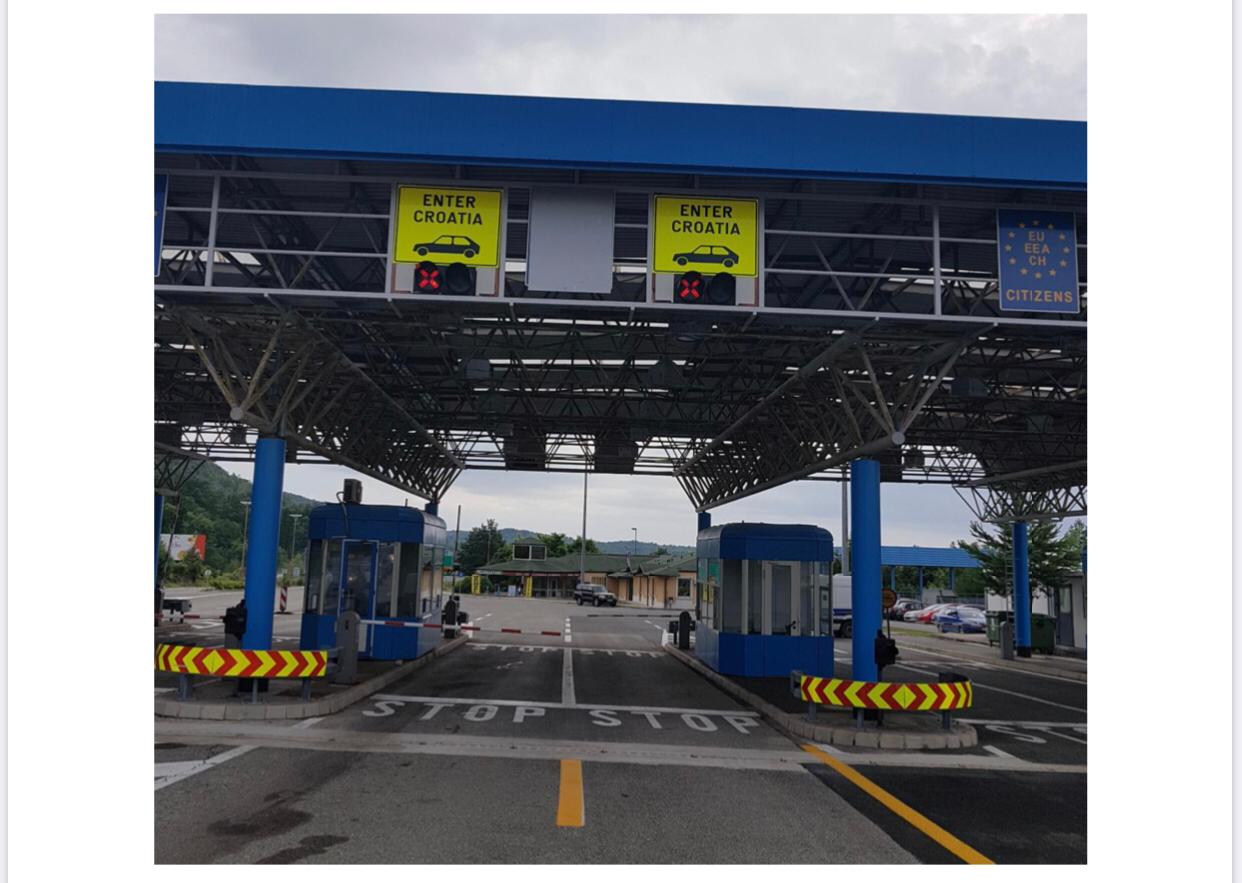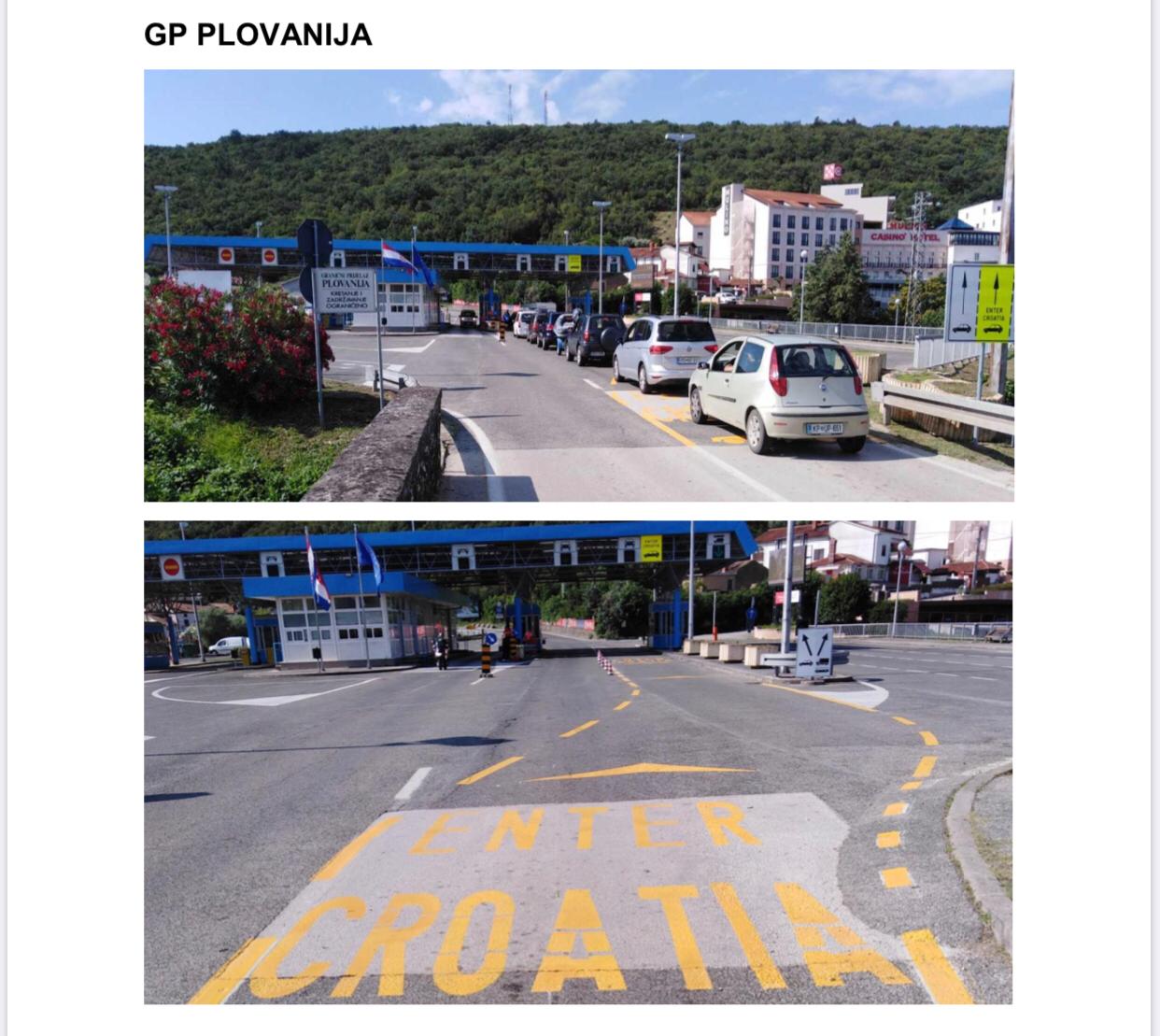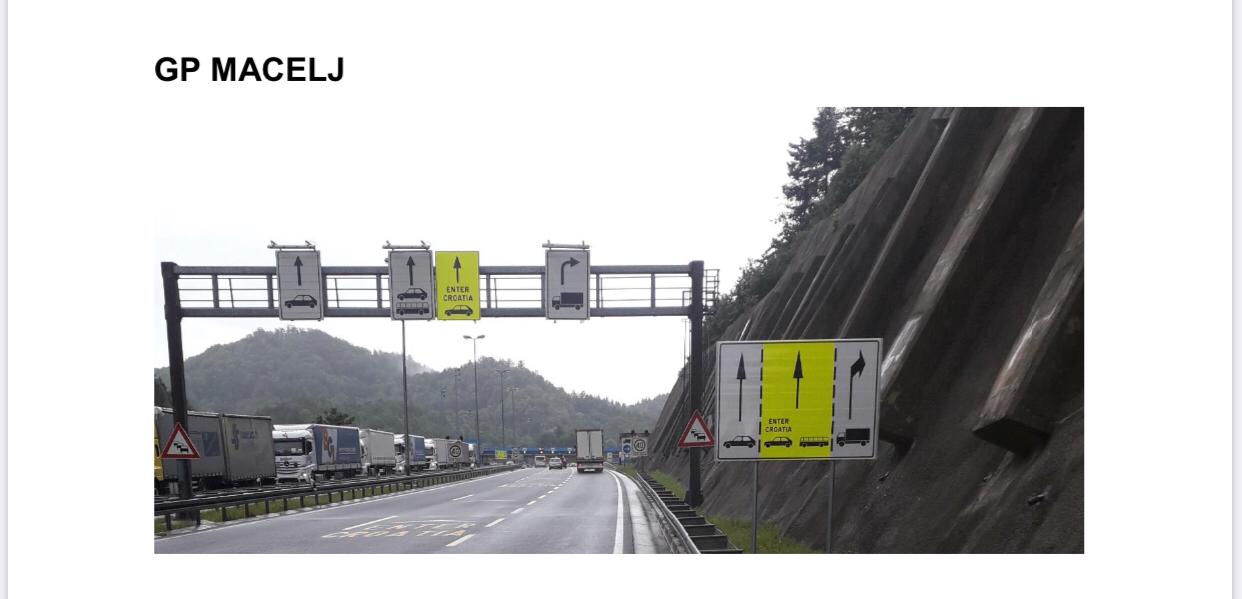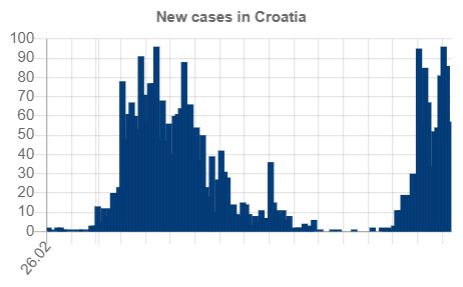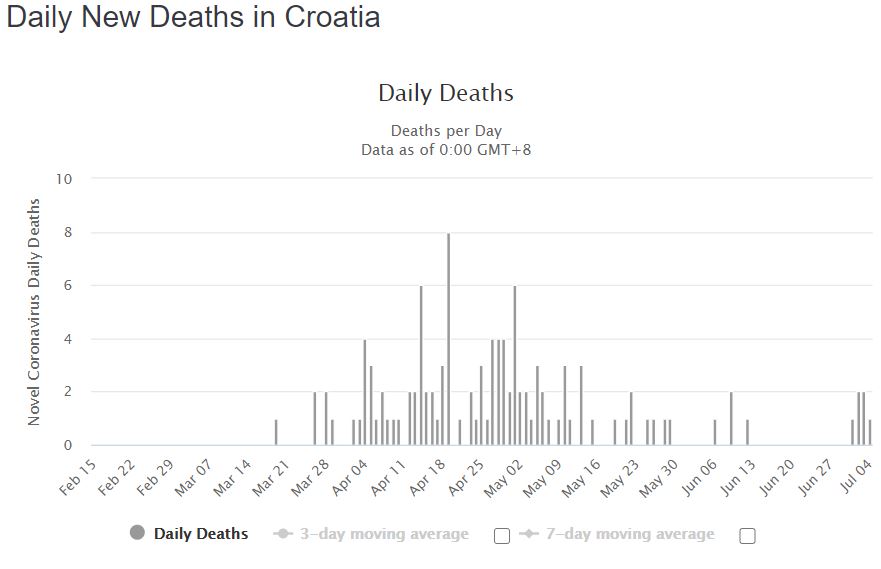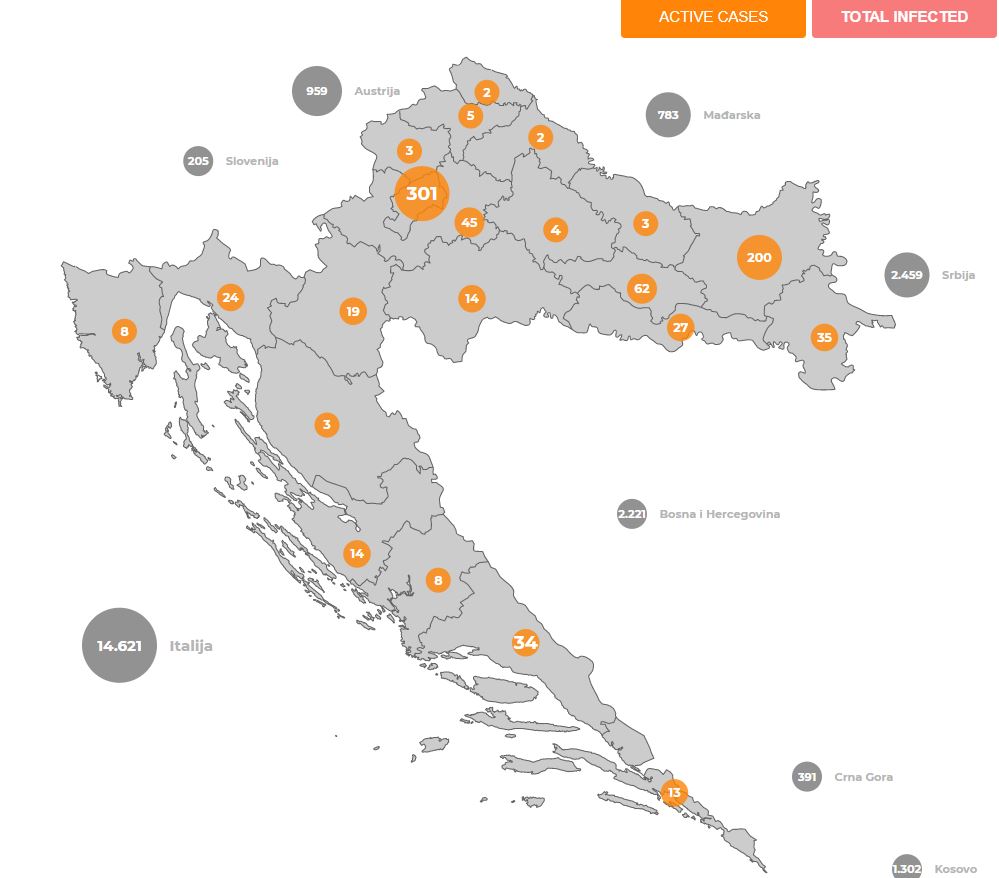Veljko Ostojic: Croatia Sending Confusing Messages, Strengthening Competition
As Novac/Dora Koretic writes on the 6th of July, 2020, although in much smaller volumes than in previous years, tourists have been arriving in Croatia for weeks, unfortunately, just at the moment when the epidemiological picture began to go downhill again. How can we find the balance between the tourism we need to live on and the safety of Croatia's residents? These are just a couple of the topics Novac discussed with the director of the Croatian Tourism Association, Veljko Ostojic.
Have we started to promote Croatia aggressively enough as an ideal destination during the pandemic? In recent days, criticism has been heard that Greece and its competitors have a much better campaign and promotion than we have. Have we lagged behind too much?
''The campaign is well timed because it didn't make sense for us to start earlier until tourism or people going on holiday were in focus. Every campaign is largely determined by financial capabilities and here we are, to be honest, with limited compared to those bigger/stronger than us. Of course, we can always discuss the effectiveness of the promotional messages we do send, as well as how we can create a synergy of funds invested by the public sector with funds invested in promotion by private companies in our key markets. Maybe we could have done better there. But with the classic promotion this year, we have an extraordinary opportunity to send messages that directly affect the decision of tourists to come to our country and, due to the great interest of the media, practically for free, too.
These are messages about the epidemiological situation, the openness of our borders and the level of security within the country, which is something that is of great interest to every tourist this season. In Croatia, we have the best epidemiological situation among our competition in Europe and across the Mediterranean, we were the first to open our borders and we're the only ones with serious tourist traffic, and all that without any tourists infected during their stay in Croatian commercial tourist facilities. No one can dispute that and in that way one must communicate clearly and constantly, from all positions of power. Although Austria is currently investing 40 million euros in its promotion on the German market, Croatia can compensate for this to a good extent only by sending clear messages that we're the closest and safest Mediterranean country for our most important emitting markets.
Are you saying that our messages on this issue were a little confusing?
There's a lot of cacophony about the epidemiological situation and about the possibility of travelling, crossing borders and so on. You have new information practically every half an hour, which is accompanied by different interpretations, and that's confusing to people. Therefore, all those who present data or communicate in any other way should be clear and precise when thinking about the consequences of making their statements. Additionally, due to the crisis this year, all EU countries are trying to keep their people and encourage them to holiday in their own countries and attract additional tourists from other countries, and they're waiting for us to make mistakes so they can use those mistakes to their own advantage.
TUI announced in late June that it would try to reach half of last year's turnover in Greece. And we’re on the map of countries where this operator is doing business, but it seems like they're still sticking to the idea that it’s more cost-effective to step up their efforts elsewhere?
Given the business logic of large global tour operators, their greater focus on large markets in which airline tickets and a package holiday come together, that's understandable. Croatia has always been predominantly a destination that is reached by car, and this year that will be even more pronounced. That's the reality and we must use it.
In addition, large tour operators are the owners or partners in a number of hotels in the destination you mention, so this is certainly a reason for increased interest.
How much will Slovenia's decision to put Croatia on the list of "yellow" countries harm us?
The largest number of Slovenes come to Croatia for tourism in coastal areas where the epidemiological picture, viewed by the daily number of newly infected people, is in the single digits, that's equal or even better than in Slovenia itself. So, as far as tourism is concerned, this problem is easily solved in the case of a real desire to solve it on both sides. Let's not forget that a large number of Croats spend the winter in Slovenia, so the interest in cooperation is mutual.
From your statements so far, it's been easy to get the impression that you're on guard when it comes to British tourists, primarily because of the rather bad epidemiological picture in the UK. Does that mean we’re going to calculate with the British this year?
The decision on border regimes is made by the Government in cooperation with the competent services. Given that they've managed the situation well so far, we have no reason to doubt their assessment. But in some cases one should be careful. As for us in tourism, we're fighting for every guest without any calculation. We're ready to provide a safe environment for everyone, our security standards in all facilities are high and all protocols are implemented. Everyone must be aware that safety is the foundation of success this tourist season and none of the tourism workers can afford to take risks with it.
Should the arrival of tourists be conditioned by a negative coronavirus test?
That's a question for the epidemiologists. We should all always remind ourselves that the result of their excellent work is the fact that we're now in a situation where, among the few in Europe, we have foreign tourist traffic at all. I'd also like to stress that, despite fears that the number of infected people will increase with the opening of the country to tourists, this hasn't actually happened. The increased number of infected people we have at the moment is not due to tourists but exclusively due to irresponsible behaviour and non-compliance with the measures of some of our own residents, and the foci of infection are on the continent, not on the coast, where we have more than 300 thousand tourists every single day.
There was a lot of criticism at the expense of Croatian hoteliers because some of them took money from the state to pay salaries, and then decided not to open their facilities. What's your comment on that?
Any criticism in that direction is unfounded. We currently have 677 hotels and 358 campsites open, and more facilities are opening daily. With the arrival of more guests in July, this trend will intensify and I believe that at the end of the month, almost all of our facilities will be open. After all, as far as the measure you mention is concerned, the aim was to retain jobs and economic operators. All of the criteria, at least as far as HUT members are concerned, has been met.
Do hoteliers have information on what will happen next regarding the Government measures? That is, will you be able to use the option of a 4,000 kuna salary subsidy or will you only have the option of a shortened working week?
There's no doubt that the Government's measures have helped to preserve jobs in the tourism sector. The measures were adopted for a period of 3 + 3 months and we believe that they will be implemented in this way. The main criterion for using the measures is that the income/revenue in the month for which you're applying is 50 percent or lower compared to the same month of the previous year. Who can survive without the help of the state with incomes that are at the level of 20-30 percent compared to last year and still keep all of their employees? In addition, the measure of part-time work isn't suitable for activities that have a distinct seasonality. Given the current announcements from companies in the northern and central Adriatic, there's now a need for new employment in the sector, so we're counting on this measure from September the 1st to April the 1st, 2021, which is necessary for survival until the beginning of the next tourist year.
What is your solution for the survival of the sector?
It's actually quite simple and we've communicated it many times to the media and the Government. Given that the disadvantages in tourism are of such intensity that they endanger the existence of a large number of companies, and thus jobs in the sector, we should focus on two types of measures. The first are measures that maintain the liquidity of companies, and the others are focused on preserving jobs. In terms of liquidity, we need stronger ''pressure'' on domestic sources of financing and lending and a ''fight'' at the EU level, and to preserve jobs we're counting on the aforementioned measure of part-time work, which will be supported by the EU. It is crucial, due to the pronounced seasonality of tourism in Croatia, to ensure these measures until April the 1st next year.
For more from Veljko Ostojic and Croatian tourism in the coronavirus era, follow our travel page.
Carriers Lay Off Workers En Masse: More Than 180 Bus Drivers Unemployed
As Novac/Gordana Grgas writes on the 6th of July, 2020, carriers have begun laying off their bus drivers en masse, as was confirmed by the Voice of the Entrepreneurs/Glas Poduzetnika association, recalling a series of unsuccessful meetings and protests to solve the plethora of problems faced by this business in relation to tourism, which arose due to the coronavirus crisis.
Calls from some of them, from Dalmatia, through Istria, to Varazdin, confirmed that owners and directors, faced with a dramatic drop in revenue and huge financial obligations owing to bus leasing contracts, are writing or announcing business-related cancellations, and bus drivers are applying to the Croatian Employment Service or are already packing their suitcases to drive a truck overseas.
Government measures
Rovinj's Črnja Tours once had 131 bus drivers employed before the outbreak of the coronavirus epidemic, and on Friday they began with about 70 dismissals because, as they stated from the company's administration, they can't afford to keep their bus drivers without state support for the payment of their salaries.
"This time last year we could hardly find people [to work], as many as 30 of our bus drivers were from abroad, from Bosnia and Herzegovina and Serbia, but now we can no longer keep our workers. We'd hoped that the Government's measures would be extended for another three months, but they weren't. We submitted a request for June, but we haven't even received an answer for that yet,'' they state from Črnja Tours, which deals with both regular and tourist transport.
Liabilities to a leasing company, during the agreed moratorium, have been settled from the loans they took out with their commercial bank, and they have applied for HAMAG's liquidity loan and are waiting for a response.
Some buses had to be returned to various leasing houses.
"We sought a solution, we negotiated, we attended the protest held in Zagreb, but we didn't achieve anything and now it's all over, I have no more comments to make about it," said the director of the Solin-based company Delminium travel, Ivona Jukic. Three of that company's buses now run for Flixbus. Tourism is going poorly, excursions and congresses are being cancelled, and Ivona is preparing the arrival of tourists by plane from Scandinavia, but she has so far failed to get an answer to the question of who will have to pay the quarantine costs if one of those tourists gets infected.
Vinko Darojkovic, the director of the transport company Darojkovic from Brckovljani, says that his turnover has dropped by 98 percent, and from starting out with 38 employees, his company has remained with just 14 bus drivers since July the 1st, and he says "we will not stop there".
Last May, he illustrated, his company had a turnover of 3.9 million kuna, and this May they earned about 90 thousand kuna.
"We'll remain working but with only about 10 buses, but last year we had 28 of them. We checked them out and now they're standing in a car park, and the market price is falling. I don't know what we'll do with the payment of the lease because the leasing companies charged us high interest rates even during the moratorium,'' explained Darojkovic, adding that he currently owes around 600 thousand kuna. They expected help from the state, but nothing happened. They fired bus drivers, mechanics, cleaners... When asked what would happen to these people, he said: ''Bus drivers are a sought-after profession, some will drive trucks to Germany or Austria. The others just cry with us and go to the employment office,'' he replied. He asked for a liquidity loan and is still waiting for it.
Vincek from Jelkovac now has 270 employees, and at the beginning of the epidemic, about 70 bus drivers were fired. At the moment, they're not firing anyone, says director Kresimir Cumbrek, in June they had an income of around three million kuna, but last June their income was 11 million kuna and without state support things will only go downhill. "There will be a collapse in July, everyone will go in the direction of layoffs, especially in the case of smaller carriers who only have a few buses. I can't believe that the state has treated us like this,'' he noted.
One of the smaller carriers, Tomislav Kovac from Kastela, stated that he had to fire two workers. Now he is the only bus driver in his company For Travel, but he doesn't really have a job: since March the 8th, he has had one ride, for which he charged 7,000 kuna with VAT. In extremely stark contrast, last year, he had a monthly income in the tourist season of up to 180 thousand kuna.
For more on working in Croatia during the coronavirus crisis, follow our business page.
EU Citizens Continue to Visit, Holiday and Leave Croatia With Ease
As many third country nationals without legal residence here struggle to find a way to get into Croatia securely without being sent back home, EU citizens are still finding it relatively easy.
As Novac writes on the 3rd of July, 2020, the Government of the Republic of Slovenia adopted a decision on the classification of countries into three categories, following which different levels of epidemiological measures are applied. Croatia was briefly on the green list, but has since been moved to the yellow list, which means that entry into Slovenia without quarantine is allowed to all Slovenian citizens, foreigners with permanent or temporary residence in Slovenia, EU citizens or and citizens of Schengen member states, with the exception of Sweden and Portugal.
For third-country nationals who don't hold temporart or permanent residence in Slovenia, a fourteen-day quarantine is mandatory upon entry into Slovenia. Guests and tourists who come to Croatia from other EU countries and on their way back from Croatia only pass through Slovenia can return to their homes without any restrictions.
"The epidemiological picture on the Croatian coast is still among the best in the Mediterranean, and so far, since the beginning of the pandemic, there has been no case of infection of tourists staying in commercial accommodation facilities, which confirms the work of the health system, civil protection and the security level in facilities and tourist companies is at the highest level. All guests who come to Croatia are safe and welcome,'' said Veljko Ostojic, director of the Croatian Tourism Association.
All citizens of the Republic of Slovenia who go to Croatia can return home without any problems with proof of residence in Croatia, but that isn't the case for neighbouring Serbia, Bosnia and Herzegovina, Northern Macedonia or Kosovo, ie, for the countries on the "red list". They can do this if they show proof of accommodation, proof of ownership of a property or a vessel, as well as proof of payment of any accompanying fees. Additionally, all guests from other European countries will not have any problems passing through Slovenia on their way home.
According to the Croatian National Tourist Board, over 1.7 million tourists have visited Croatia since the beginning of the year, with over 8.7 million overnight stays having been realised.
In order to prevent crowds on the border with Croatia, all guests are advised to fill out the form available on entercroatia.mup.hr before setting off on their journeys.
As of yesterday, at the road border crossings Bregana, Macelj, Rupa and Plovanija, there are special lanes for guests who have filled in and submitted the Enter Croatia form before arrival.
For more, follow our travel page.
Coronafund: ZAMP Will Help Croatian Musicians During Pandemic
As Novac/Zlatko Simic writes on the 4th of July, 2020, Milan Majerovic-Stilinovic, head of communications at HDS ZAMP, spoke to Jutarnji list about the coronafund for musicians.
Judging by the performances of musicians, the coronavirus pandemic has brought this industry to its knees. Both the known and the unknown have their respective existential worries. What does ZAMP’s data on revenue decline from March to July say?
The figures aren't good, because they reflect the situation in which the entire music industry finds itself both here in Croatia and across the world: the total revenues of HDS ZAMP from all sources already fell by 30 percent in March this year when compared to March last year. April was even worse, with the absence of music events and the absence of payment for music licenses for most business users, the drop in revenue compared to April 2019 was as much as 72 percent. During June, the situation improved, but it's still impossible to be optimistic.
But radio stations and television channels still see the performances of Croatian artists. Where are the biggest losses?
They refer to those users who didn't work during the lockdown and didn't even receive any music license bills. Along with the cafes, clubs, restaurants and hotels, the biggest losses come from the concert industry. This year there are no big summer festivals, concerts in arenas, there are almost no city events and there aren't really even any weddings or similar smaller events... Of course, it isn't only the songwriters who are affected, but also the whole chain, from the performers, concert organisers and promoters, lighting technicians... Everyone's hands are tied because of this situation until further notice.
What measures have you taken to assist your members in receiving payment from the three aid packages?
The Croatian Society of Composers paid its members a total of 800,000 kuna in the form of aid from the Solidarity Fund, which otherwise, on an annual basis, amounts to 50,000 kuna. This speaks volumes about the seriousness with which the HDS approached the crisis: this amount was distributed to a total of 90 regular and associate members, ie, those most affected by the coronavirus crisis, as well as those who suffered damage during the Zagreb earthquake.
The public was quite appalled by some of the names asking for help. By what criteria were the most vulnerable members selected?
First of all, regular members of the society were helped, all 36 of them, who suffered significant losses or damage during the earthquake due to the inability to conduct their business, which they proved when applying for the tender with records, personal statements, etc. 54 associate members of the society, in accordance with their asset and family status, also received help from us. HDS has only seriously considered applications from people who see music authorship as an important source of their income in life, not just an occasional occupation.
Now concerts and summer tours are being postponed again, and even in the campaign it wasn't possible to sing. Bands and singers who make their living from concerts are in the most difficult position. How else can ZAMP help them?
The real losses will be known in autumn when many, including musicians, will feel a decline in their income. HDS ZAMP is preparing a special ''coronafund'' for this period, and is actively working on the monetisation of online content to monitor the transition from real stages to virtual ones. We're monitoring all funds and sources of help for creatives, so we're inform our members about them, and we're also helping out legally.
A small number of songwriters live well on royalties. Did any of these famous names remember their colleagues who sang their songs and set up a special aid fund for them out of solidarity?
The performers were taken care of quickly and correctly by their umbrella association, the Croatian Music Union, through its funds and tenders.
You've been in this industry for years, how do you explain that after so many concerts, sold records and performances in the diaspora and at weddings, many don't even have any money in their socks after a couple of months?
That's nothing new, just like other industries, some musicians are skilled entrepreneurs who will make ten kuna from one kuna tomorrow, and some spend everything on the way out of the bar where they earned it. In recent years, the situation has been very favourable for most musicians, various types and forms of music have been used more and more, tourism has grown, and with it, the entertainment industry has too. No one even thought that such a tectonic disturbance could possibly occur.
But I read on your website that 23 songs are submitted daily, and the activity during the coronavirus pandemic increased by 45 percent when compared to last year. What does all that mean?
This means that most of them still used isolation creatively, either for bursts of inspiration or for arranging and finishing the songs that were sitting in the drawer. I hope that this will be one of the positive aspects of this situation and that they will satisfy the artistic needs of the audience, but also the material needs of their authors, once the music business starts up again in full force.
What's the situation in the countries around us, including in the EU?
The situation in Croatia is still significantly better than it is in most other countries, especially in those in our immediate region. For example, despite all of the challenges of doing business in the middle of a pandemic, HDS ZAMP successfully realised as many as two royalty calculations in April and June. These amounts have helped many authors to overcome the crisis period more easily, although we, like other countries and societies in the region, are facing a difficult winter period and a significant drop in revenue, perhaps 50 million kuna in total.
As a longtime journalist, what do you miss about your old job? I'd bet you're making a documentary about the Croatian music industry?
You'd lose that bet, but you're not far wrong - I've been hiking a lot in recent years and spending time in nature. So, just today my first book ''What I Learned on the Mountain'' came out. It contains 50 short ''stories in progress''. In musical terms, I don’t know if the book will be a hit, I'd be happy for it to become and remain a slow-burning evergreen.
For more on the coronafund and life during the coronavirus pandemic in Croatia, follow our lifestyle page.
Croatian Tourism: As Rovinj Exceeds Expectations, Dubrovnik Fails
Croatian tourism is painting two dramatically different pictures this summer. In the Istrian city of Rovinj, things are beginning to bloom, while it might be worth turning the lights off and locking the door down in Dubrovnik...
As Poslovni Dnevnik writes on the 5th of July, 2020, the centre of Rovinj was the city with the most tourists in all of the Republic of Croatia on Saturday. Rovinj. Just over 13,000 guests decided to spend their holidays in Istria, in the town of St. Euphemia. Right by the sea, in the old town, in Rovinj, coffee is purchased for fifteen kuna, which is equivalent to just a little more than two euros, writes Dnevnik.hr
"There are a lot of people here on the weekends, mostly Austrians and Germans. There are also Italians. We expect that there will be more guests in July and August,'' said Sebastijan Ilic.
In Rovinj, occupancy levels are growing with increasing degrees on the thermometer, and the view of the old town from a five-star hotel will cost you about 4000 kuna per night. With breakfast included.
Much further down the coast in the famous City of Dubrovnik, Croatia's tourist Mecca, a completely different picture can be seen...
Down in Dubrovnik, the picture is completely different. Last year’s figures of 1.4 million tourist arrivals sound unreal now. Only 2,500 guests were registered in the city on Saturday, which is 10 percent of last year's traffic. Dubrovnik's coffee, an eternal inspiration to price analysts, still comes at a cost of 24 kuna on Stradun, and down one of the old city's streets, it costs up to 12 or 10 kuna.
In Dubrovnik, unfortunately, most of the terraces are empty. Some haven't yet even bothered to opened their doors. It's simple - there are no guests, so it's more cost-effective to keep the keys in the lock than put an empty pot on the stove for no reason.
For the most attractive view of the walls of Dubrovnik in a five-star hotel, you'll pay 5300 kuna. However, half of the hotels have not yet opened their doors in the famous Dalmatian city, and only some have adjusted their prices.
"We didn't open our hotels solely because of numbers and occupancy, but also because of the psychological effect, it proved to be the right decision and since the opening we're recording more and more interest, and we're pleased with the announcement from the British market, that is the most important one for Dubrovnik," said hotel spokeswoman Zrinka Martinovic.
On the most famous Dubrovnik beach this year, Banje (formerly East-West), you won't have a problem finding a place to put your towel this tourist season. One thing is for sure - this summer, many of Dubrovnik's actual residents will finally be able to enjoy their own beaches, which is both a blessing and a curse.
For more on Croatian tourism in the coronavirus era, follow our travel page.
Putting Croatia's Coronavirus Numbers in Perspective
July 5, 2020 - Taking a closer look at Croatia's coronavirus numbers and comparing to the rest of Europe.
Let me start by saying that everyone has their own corona perspective. Mine was spent on the idyllic island of Hvar, where I spent 63 days of bliss watching the world collapse around me. There were a total of two cases of corona on Hvar, both imported from locals returning from jobs in Austria.
Croatia handled the initial corona crisis as well as any country in Europe. Today's official stats for a country of 4 million people are as follows:
Total cases - 3,151
Total Deaths - 113
Active Cases - 842
Active Cases on the coast - 104
Number of patients on ventilators - 4
Total Deaths in the last 30 days - 10
There is talk of a second wave in Croatia. The official statistics show that there has not been more than 100 cases a day, if the numbers are to believed. The current number of daily cases is the same as the peak in Croatia several weeks ago.
This not being my area of expertise, I asked for some guidance in understanding from experts.
Watch the number of patients on ventilators, I was told. That will give you an accurate picture.
There are currently four patients on a ventilator.
Some think corona is a hoax, some think it is the real deal. I am not going to enter that argument. All I want to do is present the data, and let the people decide for themselves.
Croatia has a total of 113 deaths, 10 of which have come in the last 30 days, reports Worldometer.
Of the 842 active cases reported by Koronavirus, 104 are on the coast and islands.
Is it safe to visit? I am not going to enter the discussion on health v tourism and the economy, as the discussions are complex and my opinion is irrelevant. All I can do is point out the real situation away from the headlines, and then let people decide.
For the latest travel info, bookmark our main travel info article, which is updated daily.
Read the Croatian Travel Update in your language - now available in 24 languages
Join the Total Croatia Travel INFO Viber community.
55 Coronavirus-Positive Voters Want to Participate in Sunday Election
ZAGREB, July 5, 2020 - Fifty-five people infected with the novel coronavirus have expressed a wish to vote in the July 5 parliamentary election in Croatia.
Most of them, 24, come from Constituency No. 4, 16 come from the first constituency, nine from the fifth, four from the seventh and two from the tenth constituency, State Electoral Commission member Slaven Hojski said on Sunday morning.
People infected with the coronavirus will be able to vote with the help of another person of their confidence, who will fill in the ballot as instructed by the infected person and give it to a member of a polling committee who will visit them and collect the ballot without coming into direct contact with the infected person.
A total of 3.860 million people have the right to vote in Sunday's elections, and 539 people in self-isolation have applied to vote as well. A total of 1,730 people want to vote at home (bed-ridden, severely ill people).
According to available information, the voting is proceeding normally, voters are behaving responsibly, wearing protective equipment and complying with rules of physical distancing.
The first report on the turnout will be published at noon.
Veljko Ostojic: 10% or Less Arrivals in Southern Croatia Compared to 2019
Veljko Ostojic, the director of the Croatian Tourism Association, sat down to discuss the numbers in southern Croatia, the home of the country's tourist Mecca - Dubrovnik, as well as other popular Dalmatian locations that usually have no issues when it comes to pulling in tourists en masse.
The ongoing coronavirus pandemic has been wreaking havoc with global tourism and Croatia, which relies heavily on the tourism industry which makes up as much as 20 percent of its GDP is far from immune to the extremely negative trends the pandemic has and continues to cause.
When looking at the numbers of foreign tourists who visited the country this time last year compared to now, there is a lot of reason to be concerned, especially as Croatia's cases of infection with the new coronavirus continue to rise. At the minute, this is among the only upward trends expected.
As Poslovni Dnevnik writes on the 4th of July, 2020, the director of the Croatian Tourism Association, Veljko Ostojic, as a guest on New Day/Novi Dan, said that given the expectations and fears that preceded the Croatian tourist season, he was not entirely dissatisfied. Most of Croatia's current guests are staying in the northern Adriatic, and the least of all are in the extreme south of Croatia, according to N1.
"The situation is different in different parts of the Adriatic. In the north, we're at about 40 percent, in the central Adriatic we're between 20-25, and in the south, we're at 10 or less percent when compared to the same day last year. Happy booking balances for July and August... If nothing radical happens, I hope that the numbers will grow by the end of the season,'' stated Veljko Ostojic.
Veljko Ostojic also noted that there have been 1,720,000 arrivals of foreign tourists to the Republic of Croatia to date, adding that no tourists have been infected with the new coronavirus when staying in commercial accommodation. "We have had several cases of foreigners being infected, but none of them have been infected in Croatia, as far as we know,'' he added.
He pointed out that the situation on the coast is much better than in all countries that have introduced difficult regimes for crossing borders, ie the return of their citizens.
Veljko Ostojic said that prices are defined by each service provider for themselves and are the result of supply and demand. "There are also cases in the north where prices have dropped. Prices to the south are still generally lower, but I can't say that it's something linear and general,''
Family/private accommodation is especially at risk...
Family accommodation is the most affected accommodation category.
''We have over 600,000 beds… A large number of beds will certainly result in reduced demand,” he said. Even in a crisis situation, quality is a priority, so there are more guests in higher category camps.
When asked how Slovenia's decision to make crossing the Slovenian-Croatian border makes it more difficult for Croatia, he said: "Slovenia's decision is reflected in the bookings,'' adding that the move was made primarily as a result of the recent situation in Zadar.
For more on travel to, from and within Croatia in the coronavirus era, follow our travel page.
330,000 Tourists in Croatia, Problems with Cro Card Continue
The Croatian National Tourist Board (HTZ) has earmarked funds for the promotion of the now somewhat (in)famous Cro card, and as soon as it receives the green light from the ministry, it will start promoting it, Stanicic said, adding that he hopes that will take place in the coming weeks.
As Poslovni Dnevnik writes on the 3rd of July, 2020, according to eVisitor, about 330,000 tourists were on holiday in Croatia on the 3rd of this month, which is about 60 percent of the amount which was recorded the same day last year, and most of them are staying in Istria and Kvarner, said Kristjan Stanicic on Friday after a coordination meeting with representatives of tourist boards from Primorje-Gorski Kotar County.
According to him, in June, there were about 800,000 tourist arrivals and about 5 million overnight stays realised, which is 32 to 33 percent of last year's traffic, so, he says, the CNTB's forecast was quite accurate. He added that he expects that percentage to grow in July and August.
At the meeting, Stanicic presented the promotional activities of the CNTB for 2020, and they also discussed joint promotional activities that will be carried out in cooperation with tourist boards from the county and the procedures related to the ongoing coronavirus pandemic.
He pointed out that during the pandemic, the CNTB created three campaigns and maintained the visibility of Croatia through the media and social networks, which enabled Croatia to be one of the few tourist destinations in the Mediterranean where tourist traffic is now taking place. The greater visibility of Rijeka and Kvarner, for example on the extremely important British market, will be contributed by the new two-month issue for July and August of Wanderlust travel magazine, which suggests to readers what to see and visit in 72 hours in Rijeka and Kvarner.
When asked about Slovenian guests, Stanicic said that there are now about 70,000 of them in Croatia, and so far they have realised about 1.1 million overnight stays.
"We're monitoring the development of the situation regarding Slovenia's recommendations to its citizens and I believe that in the coming days, with the number of infected, Croatia will return to the green list and that Slovenians will continue to come and stay in Croatia," he said.
According to Stanicic, most tourists come from Croatia's neighbouring and surrounding countries - Germany, Austria, Slovenia, the Czech Republic, Hungary, along with domestic guests.
"So far, we've had about 1.7 million guests, who have realised over 8 million overnight stays," he said, emphasising that so far, there have been no tourists infected with coronavirus in Croatia, and that the entire health system in Croatia is functioning well.
Asked if they could be infected with coronavirus, he said they were aware of a certain risk, but that everyone is well prepared, that there were protocols and procedures in place and that all providers of services were aware of them, he added that he believed the risk would be reduced to a minimum measure.
When asked about the frequently discussed Cro card, onto which employers will be able to pay workers up to 2,500 kuna to spend at Croatian tourism facilities, Stanicic said that there are technical details that need to be resolved with the banks and that he believes the Cro card will come to life as soon as those matters are ironed out and eventually resolved.
The CNTB has earmarked funds for the promotion of the Cro card, and as soon as it receives the green light from the ministry, it will start promoting it, Stanicic concluded.
For more on the Cro card and travel to, from and around Croatia in the coronavirus era, follow our dedicated section.
Croatian Bureaucracy 2.0: Priority Border Crossing for Enter Croatia Form Fillers
July 4, 2020 - The Enter Croatia border crossing form is Croatian bureaucracy's 2020 hit. And it just got better.
When was the last time you read an article which said that Croatian bureaucracy rocks?
Because THIS Croatian bureaucracy rocks.
For the latest travel info, bookmark our main travel info article, which is updated daily.
Read the Croatian Travel Update in your language - now available in 24 languages
Join the Total Croatia Travel INFO Viber community.
The Netherlands - as of July 21, Croatia is placed on the "Orange" list by the Dutch government, which means that both the Croatian nationals and the Dutch nationals returning to the Netherlands from Croatia are strongly advised to self-quarantine for 14 days.
On May 17, I visited the main border crossing between Croatia and Slovenia at Bregana. With so little information available, we decided to go to the border personally to see the situation. It was beyond confusing - Who Can Cross the Croatia Slovenia Border? Who Cannot? A May 17, 2020 Border Visit.
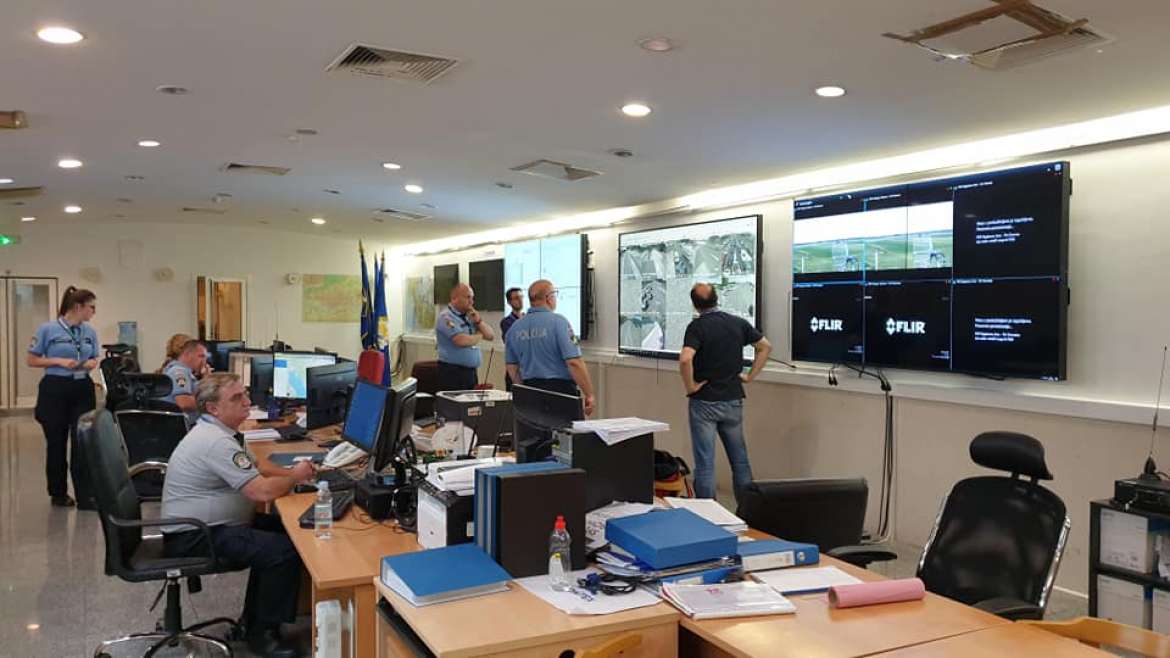
Three weeks later I was back again, to see how the new Enter Croatia form was working, a stunning bit of technology which show how Croatian bureaucracy COULD be. One of the most amazing visits in my 18 years in Croatia - Behind the Scenes at the Croatian Border Control System: AMAZING!
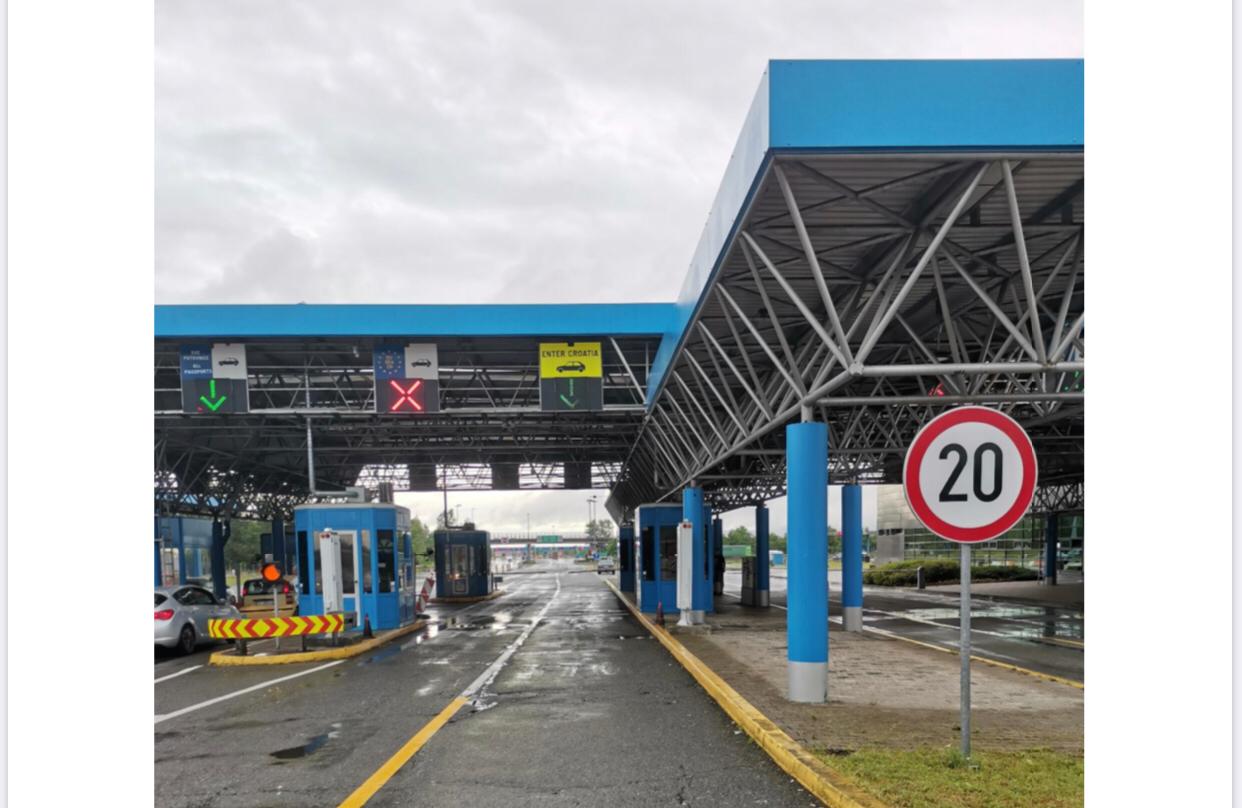
More than a million people have used the form so far. What I love about it on the Total Croatia Travel INFO Viber community after they enter Croatia is they wonder what all the fuss is about. There was no bureaucracy at the border whatsoever.
Exactly.
Because if you fill in the form beforehand - now available in 11 languages - the Croatian border police have all your details in the system. Your border crossing experience is one passport scan per person. 30 seconds and you are on your way.
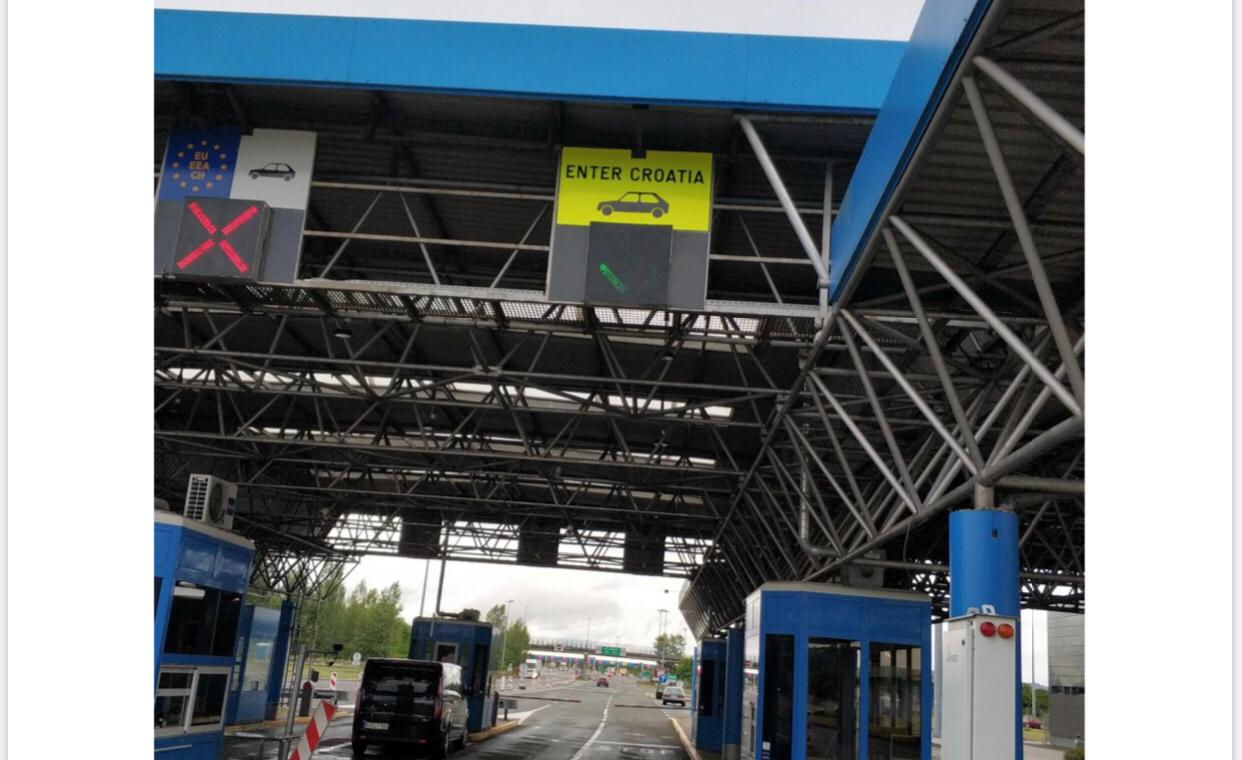
And now, one more incentive to fill in the form for those driving. MUP has introduced a priority Enter Croatia lane at four key border crossings for those who have filled in the form.
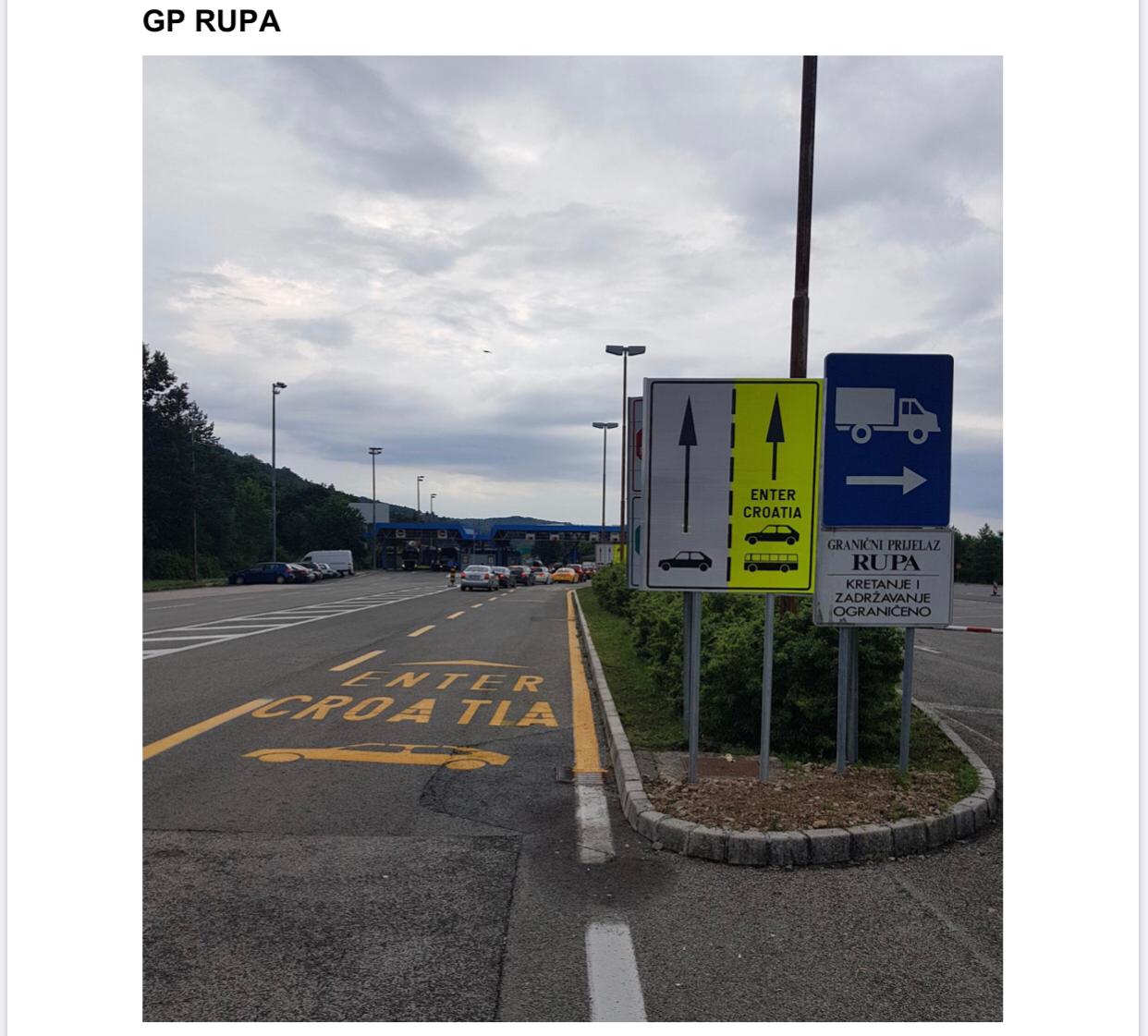
Imagine being in a queue behind 10 cars who have filled in the form (30 seconds) and 10 that haven't (5-8 minutes) - the choice is yours.
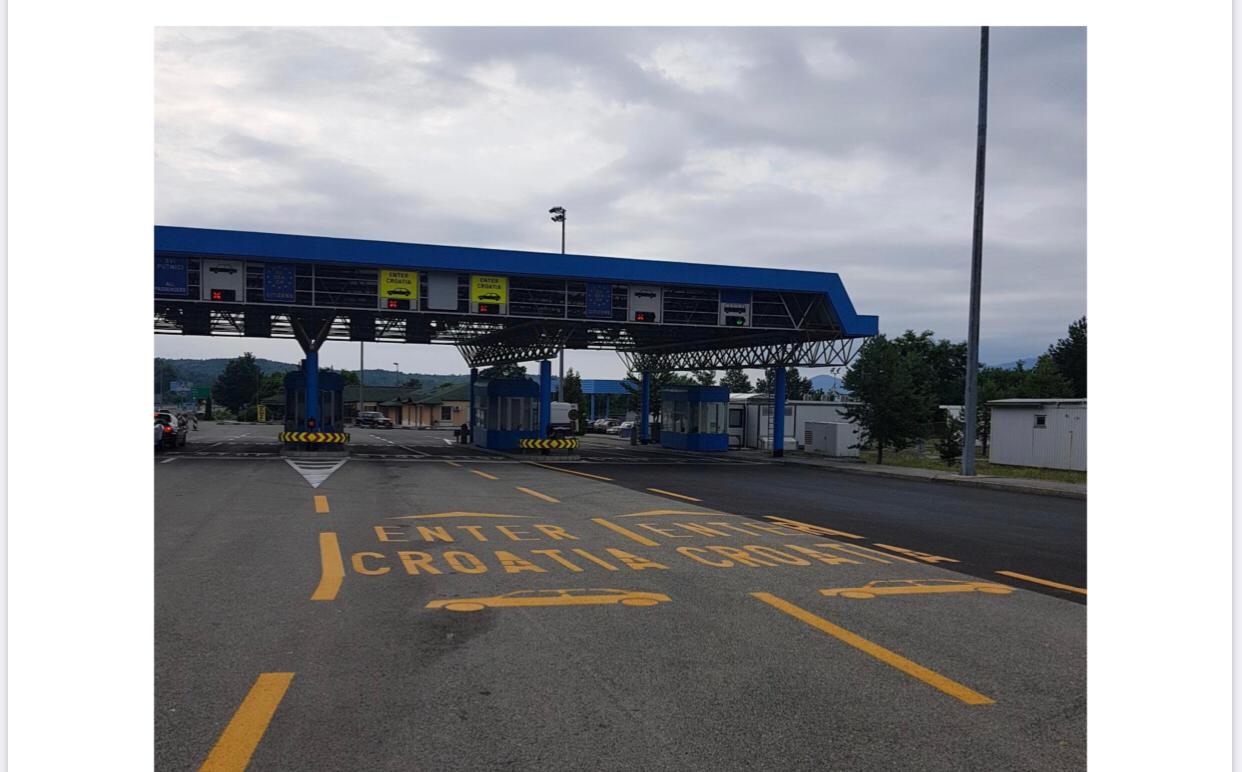
Bravo MUP, without a shadow of doubt the most effective ministry in Croatia right now. I never thought I would advocate a police state, but if you can spread the seed of Croatian Bureaucracy 2.0 to your colleagues, what a country we could have.
